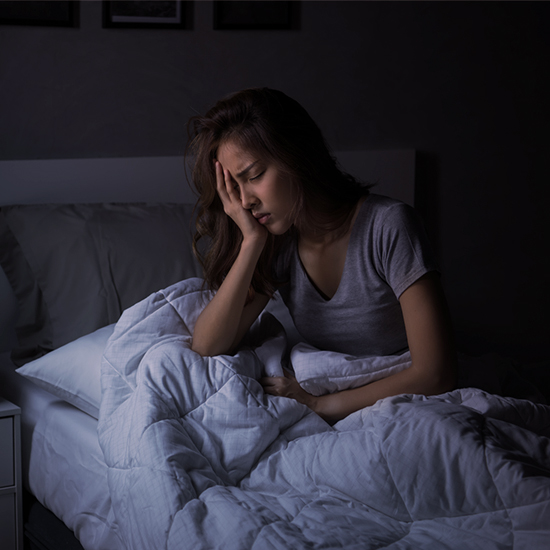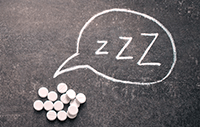
Insomnia is a common sleep disorder, more common in women than men, characterized by difficulty falling asleep, waking up during the night or waking earlier than needed — or any combination of these.
Short-term insomnia — lasting a few days or weeks and often triggered by stress — occurs in up to 50% of people, while chronic insomnia disorder — where sleep difficulties occur at least three times a week for three months or longer — affects an estimated 10 to 15% of the population. Restful sleep is important to our health and regular lack of sleep can be associated with health issues like diabetes, hypertension (high blood pressure), weight gain, feeling tired during the day, irritability, problems with concentration and memory, and even driving accidents.
Chronic insomnia can be managed or treated with cognitive behavioral therapy that helps overcome the underlying causes of the problem or short-term use of sleep medications.
Here are some lifestyle changes around your sleeping routine that may help you sleep more restfully:
· Consistency — try to get to bed at the same time each night and get up at the same time, even on weekends.
· Shut off the screens — turn off your TV, phone and other electronic devices at least an hour before bed.
· Eating and drinking — avoid large meals before bed, as well as caffeine and alcohol
· Exercise — physical activity during the day or early evening can help you fall asleep more easily.
· Environment — make sure your bedroom is quiet, dark and comfortably cool.
Do you struggle with insomnia? Share your experiences and tips with the Shop Talk blog community!

Did you know: Melatonin
While the body produces a hormone called melatonin that induces sleep, there’s no proof that over-the-counter melatonin supplements do the same. Speak to your doctor before trying melatonin.
